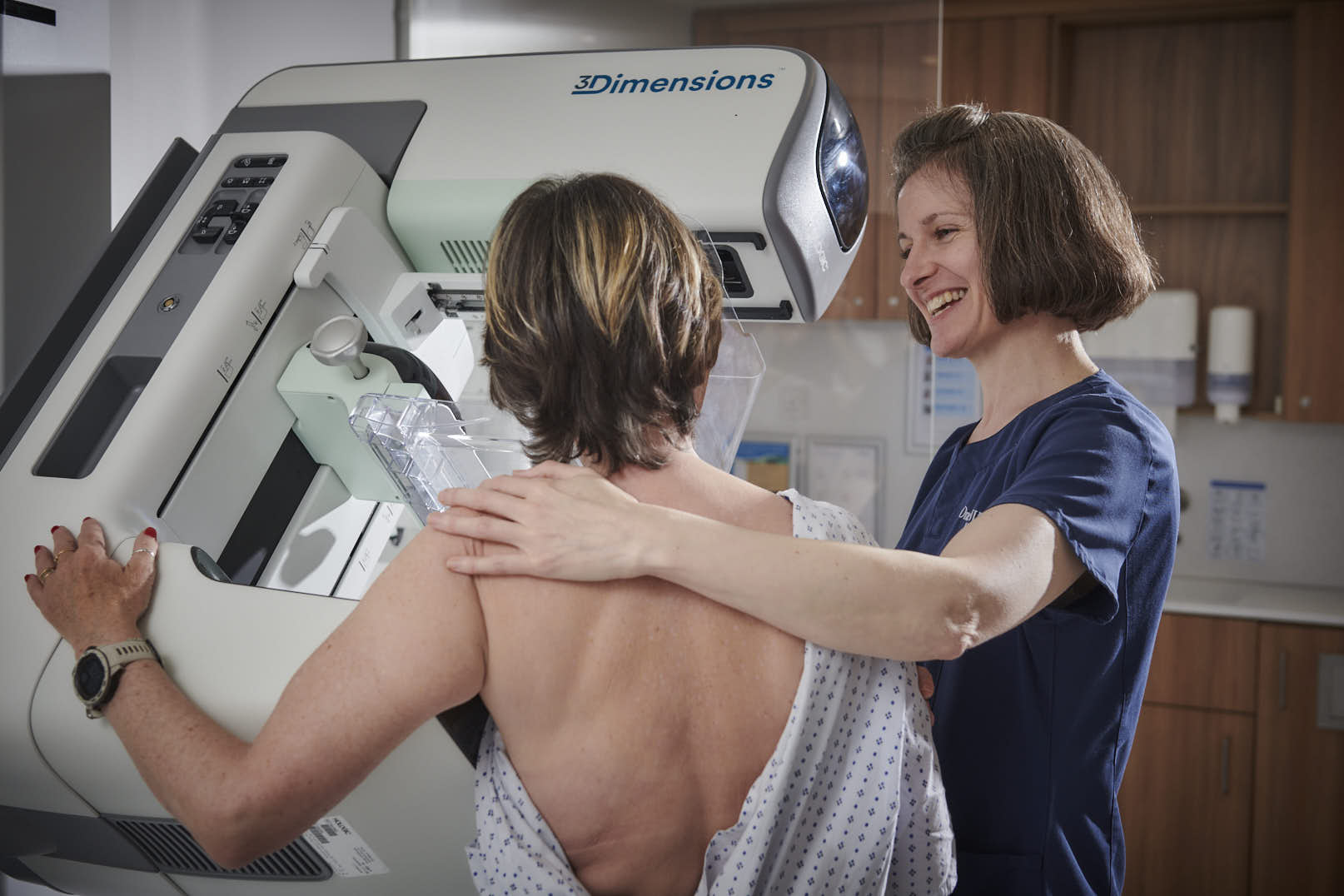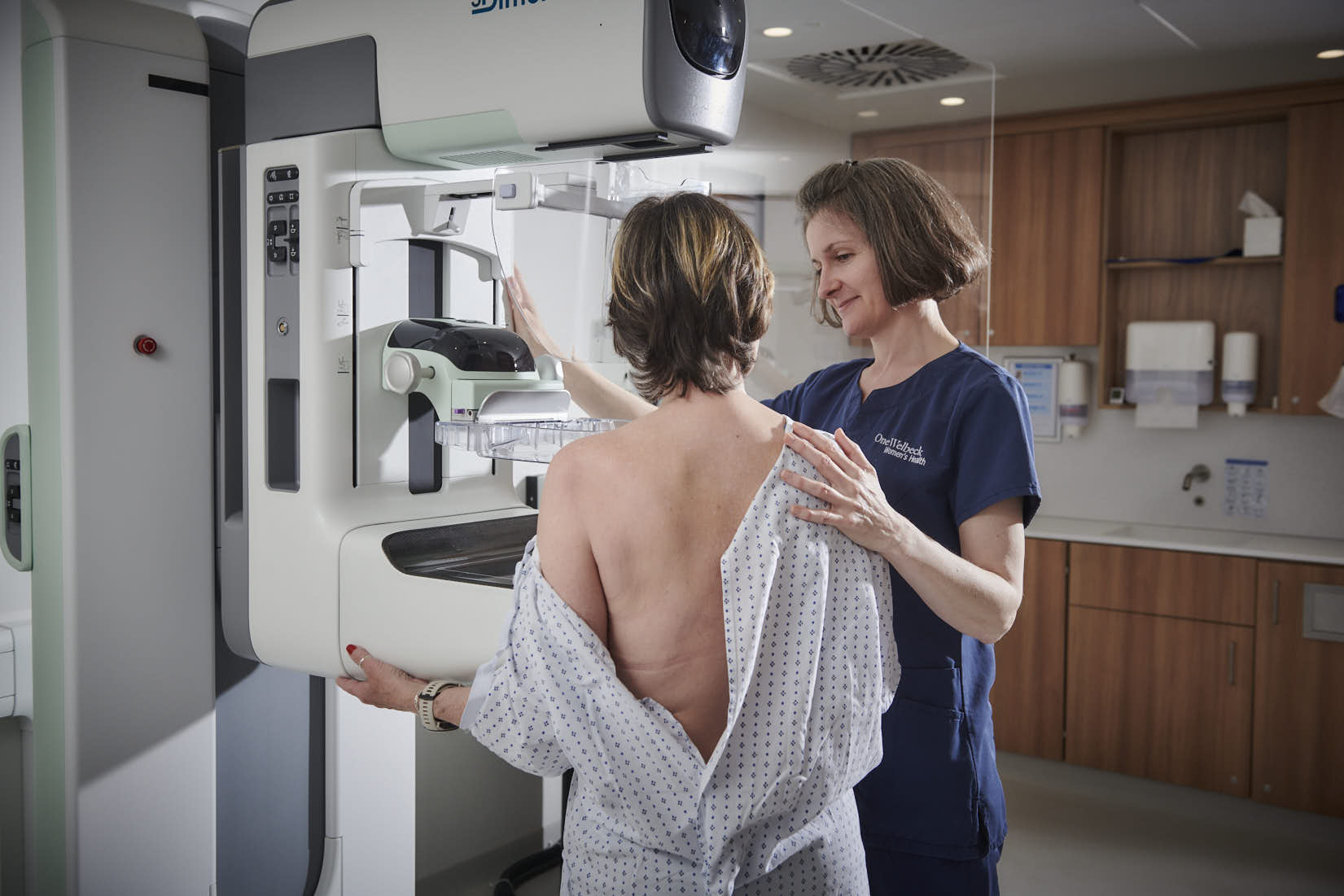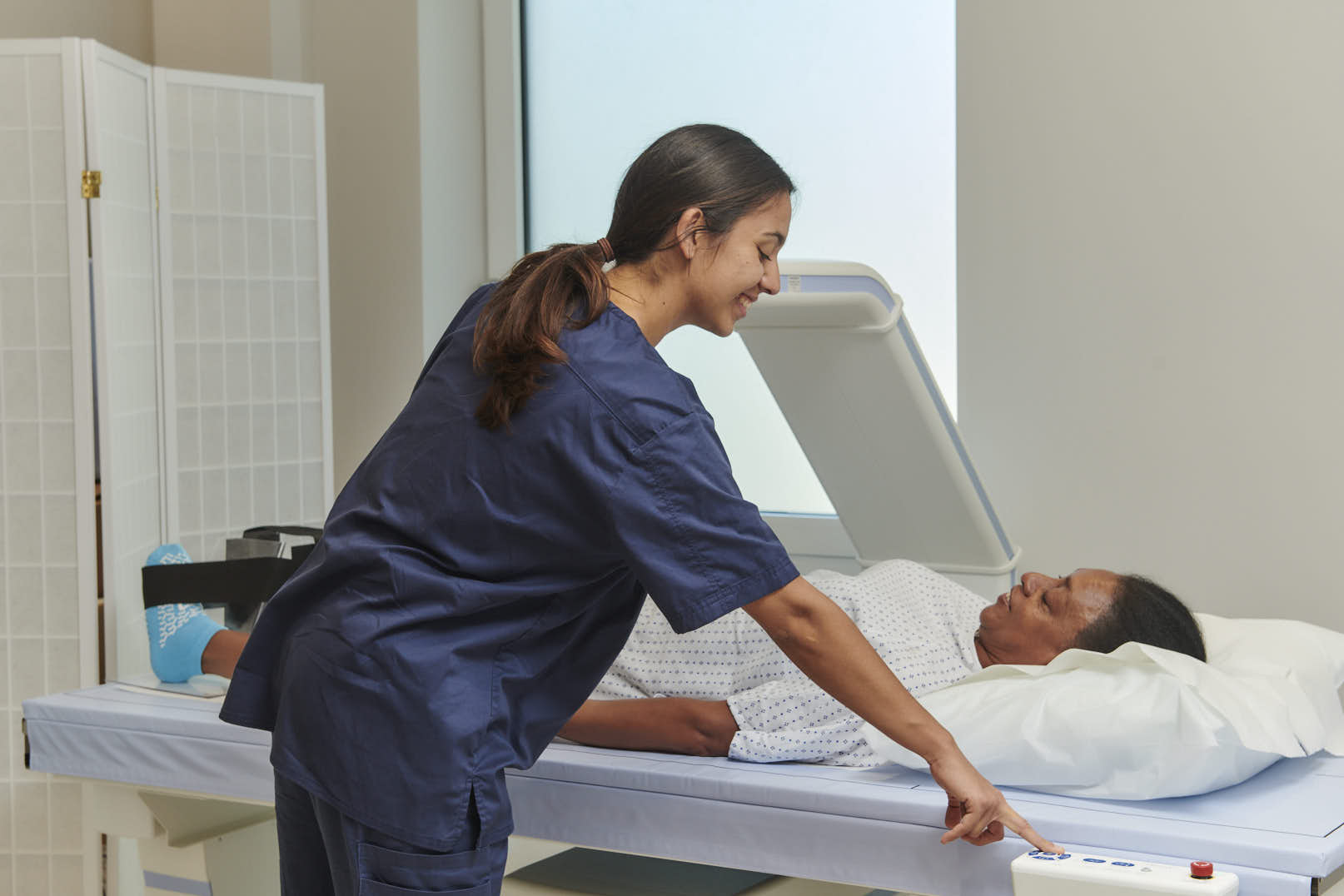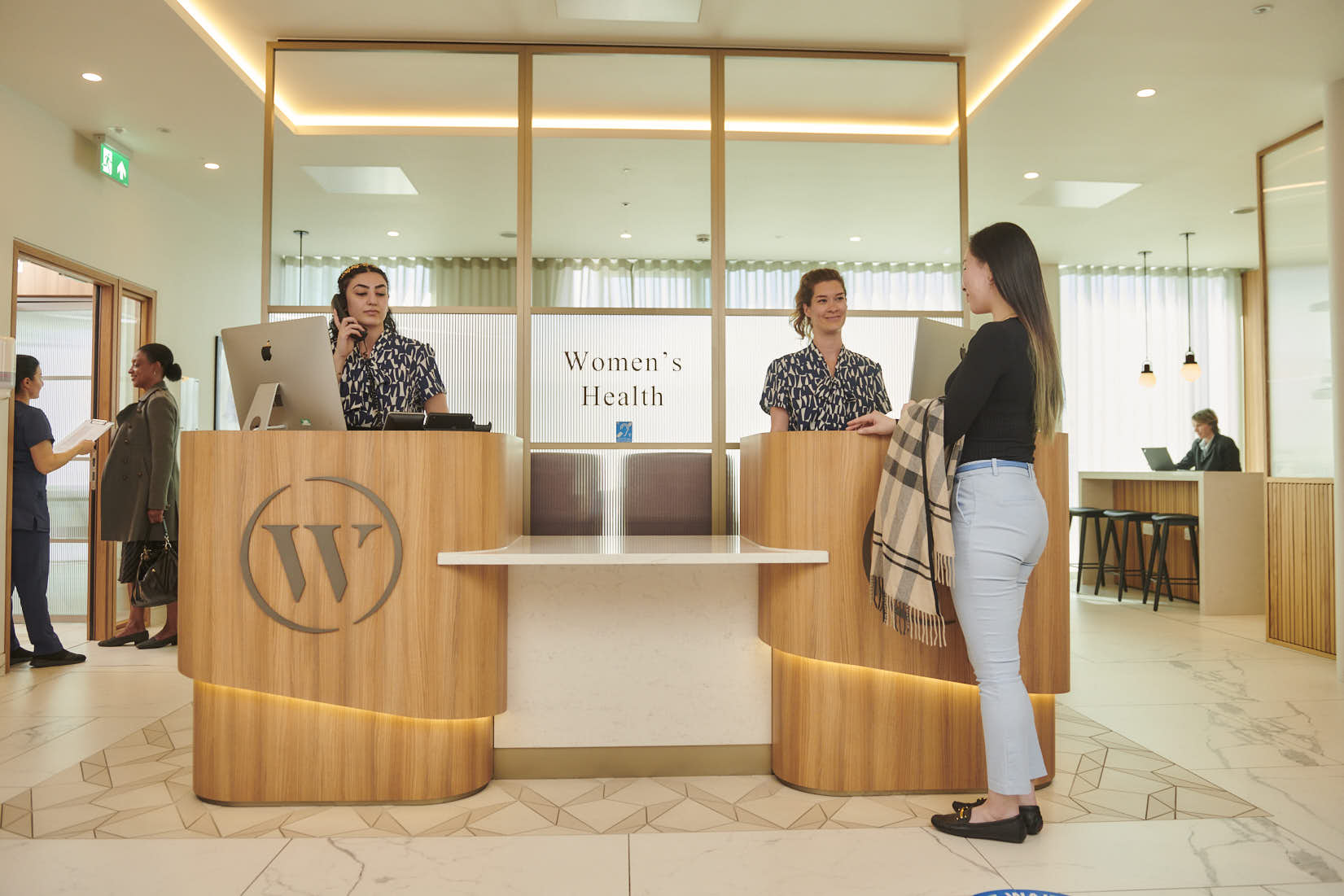Miss Monika Kaushik
Consultant Oncoplastic, Reconstructive and Aesthetic Breast Surgeon
Specialist expertise: Reconstruction, Cosmetics, Breast Surgery, Breast Plastics, Breast Oncoplastics.
There are various common symptoms you should be on the lookout for when regularly checking for breast cancer.

Cancer, cysts, abscesses, mastitis, gynaecomastia and fibroadenoma are conditions that commonly affect the breasts. At OneWelbeck, our breast specialists provide first-class care in diagnosing and treating breast conditions.
On this page, you’ll find information on each of these conditions, what to look for and how to check your breasts.

Breast Cancer is the most common cancer in the UK, accounting for 15% of all new cancer cases. There are around 56,800 new breast cancer cases in the UK every year. Knowing the symptoms of breast cancer can help you get an early diagnosis, improving your chances of successful treatment.
We recommend visiting OneWelbeck for a comprehensive breast assessment if you notice anyof the following symptoms of breast cancer:
● A lump or thickening in your breast or armpit that feels different to the rest of the breast tissue
● A change in the size, shape or feel of your breast
● One breast becoming larger, lower or higher, or softer or firmer than the other breast
● Continuous pain or discomfort in one part of your breast or armpit
● A nipple that becomes inverted or changes shape or position
● Changes in the skin of your breasts
● Swelling under your armpit or around your collarbone
● Discolouration, rash or change in appearance of your nipple(s) – this includes eczema, where an itchy, dry rash develops around the areola
● Discharge of any colour from your nipple(s) (outside of pregnancy and breastfeeding)
Changes to your skin are an important symptom of breast cancer to look out for. Skin changes could look like:
● Dimpling or puckering – the skin on your breast may be puckered or dimpled, which can look like orange peel
● Redness – your skin may appear red and may feel warmer than the surrounding tissue
● Nipple changes – one or both nipples may be flattened, inverted, or pulled in. You may also notice a rash or scaling
● Tethering – your skin may appear sunken or concaved when a lump is examined
● Fixation – the skin over a lump may be unable to be pinched, suggesting it is fused to the skin

Very early inflammatory breast cancer rash
Inflammatory breast cancer (IBC) is a rare type of cancer that spreads quickly – symptoms usually progress over three to six weeks.
Unlike most breast cancers, it doesn’t usually appear as a lump in your breast tissue, but as a rash.
This rash may look like a bruise that doesn't go away or appear as red bumps or an irritation of the skin. The texture of the skin may resemble an orange peel and be discoloured.
Other symptoms of IBC include pain or tenderness, redness, swelling, dimpling, thickening, nipple changes and swollen lymph nodes near your collarbone or under your arm.

Breast lumps are very common, with more than 25% of women experiencing them during their lifetime. Fortunately, most of these will be non-cancerous, with only 10% of new lumps being diagnosed as breast cancer.

We say that you should “get to know” your own breasts so that you know what’s normal for you; you are the best person to notice any changes and realise when something feels new or different.
You can check your breasts by following these three steps:
1. Look at your breasts in the mirror with your arms by your sides. Do you notice any changes?
Raise your arms and look again for any changes such as dimpling, discomfort or a change in shape. Take care to look underneath your breasts.
2. With the pads of your fingers feel your way across your breast tissue moving in a circular motion. Use both light and firm pressure and remember to check up to your collarbone and under each armpit.
3. Feel around and over each nipple and look for changes such as discharge, a rash and inversion. You may find it easier to feel your breasts in the shower or lying down.
Your breasts are made up of fat, lymph nodes, veins, nerves and milk systems. It’s completely normal for breast tissue to have a lumpy, bumpy texture. It can also be normal to have denser or thicker areas of tissue.

It’s recommended you check your breasts for changes once a month, around the same date. It’s also recommended that all women over the age of 40 attend a mammogram every year to be screened for breast cancer.
Your breasts will look and feel different at points throughout your menstrual cycle so checking them regularly can help you learn what looks and feels normal for you. This makes it easier to notice any changes that could be a sign of breast cancer.
Watch the video below for guidance on what to look for when you check your breasts.

A breast cyst is a non-cancerous (benign), fluid-filled sac in your breast. They are one of the most common causes of a lump in the breast with around 7% of women developing one in their lifetime.
A breast cyst can feel very similar to a breast cancer lump, which is why it’s important to always seek a medical diagnosis if you notice any breast changes.
Breast cysts can be:
● A soft or hard, oval or round, lump in the breast that has developed quickly
● A few millimetres up to several centimetres in size
● Unnoticeable, or uncomfortable or painful.
● Singular or in clusters
● In one or both breasts
● Larger before your period and smaller after

At OneWelbeck, our Consultant Radiologists can make a diagnosis of breast cysts during a breast ultrasound examination to your assess breast tissue. They will also be able to determine the type of breast cyst you have, which will help them determine the best course of treatment.
The three types of breast cyst are:
● Simple breast cyst: These make up around 90% of all breast cysts and are always non-cancerous
● Complex breast cyst: Around 20% of cases lead to a diagnosis of breast cancer
● Complicated breast cyst: There is less than 2% of this type of cyst being diagnosed as cancerous

A pea-sized breast lump is often diagnosed as a cyst. However, a pea-sized lump could also lead to a diagnosis of:
● Breast cancer
● Breast abscess – this is a painful build-up of pus in the breast caused by an infection. It mainly affects women who are breastfeeding. An ultrasound scan will be performed to confirm the abscess and the puss will then be drained through a needle.
● Mastitis – this is most common in breastfeeding women and causes breast tenderness and pain, skin redness, a rash, feeling hot with flu-like symptoms.
● Gynaecomastia – this is an increase in the amount of breast gland tissue in men causing one or both breasts to look larger than normal. Swelling may be painful or tender.
● Fibroadenoma – this is typically a rubbery-feeling, painless lump with a well-defined round or oval shape. It’s easy to move around under the skin as opposed to being stuck in one place. An ultrasound scan will be performed and a needle test carried out to confirm.

It is important to never self-diagnose. If you notice a lump in your breast or any other symptoms listed here, contact us straight away to book an appointment with one of our breast specialists.
If you have symptoms, and you are over the age of 40, it is usual to perform a mammogram followed by a breast ultrasound, and also a biopsy in some cases.
In patients who are younger than 40 initial imaging will often be a breast ultrasound scan. A mammogram will then be added if appropriate.

At OneWelbeck, our breast specialists are leaders in their field and offer a range of services to ensure that you receive the appropriate care and treatment. If you have any concerns about a problem with your breasts you can visit our One Stop Clinic where we offer a rapid service where you will be seen by one of our consultants and undergo imaging and needle tests if necessary. You will receive the results at the same visit and if a tissue sample/biopsy is performed, the laboratories usually have results available within 72 hours.
We recommend making an appointment to visit our One Stop Clinic as soon as possible if you notice any of the breast changes or symptoms listed on this page.
Generally, a lump is the first noticeable symptom of breast cancer. However, in the very early stages, breast cancer often shows no symptoms. This is why it’s important to attend annual mammogram screenings after the age of 40. If we can diagnose Breast Cancer before any symptoms are felt, the cancer will be very small and the treatment less invasive.
It’s important to check your breasts regularly so that you know what’s normal for you and can identify any changes as soon as they happen. However, checking too often can make it harder to notice subtle changes. Try to check your breasts once a month.
At OneWelbeck, our breast specialists can check any symptoms using gold-standard diagnostics so that you receive a fast and accurate diagnosis, and can start treatment as quickly as possible if necessary.
Currently selected day
Available consultations
Common symptoms
Discolouration, change in shape, discharge, lump...
When should I be worried about my breasts?
When should I be worried about my breasts?
Does early breast cancer have symptoms?
Does early breast cancer have symptoms?
Can you check your breasts too much?
Can you check your breasts too much?
What kind of doctor do you see for breast symptoms?
What kind of doctor do you see for breast sympto...
You can read more about what to look out for with changes in your breast by downloading our simple guide: